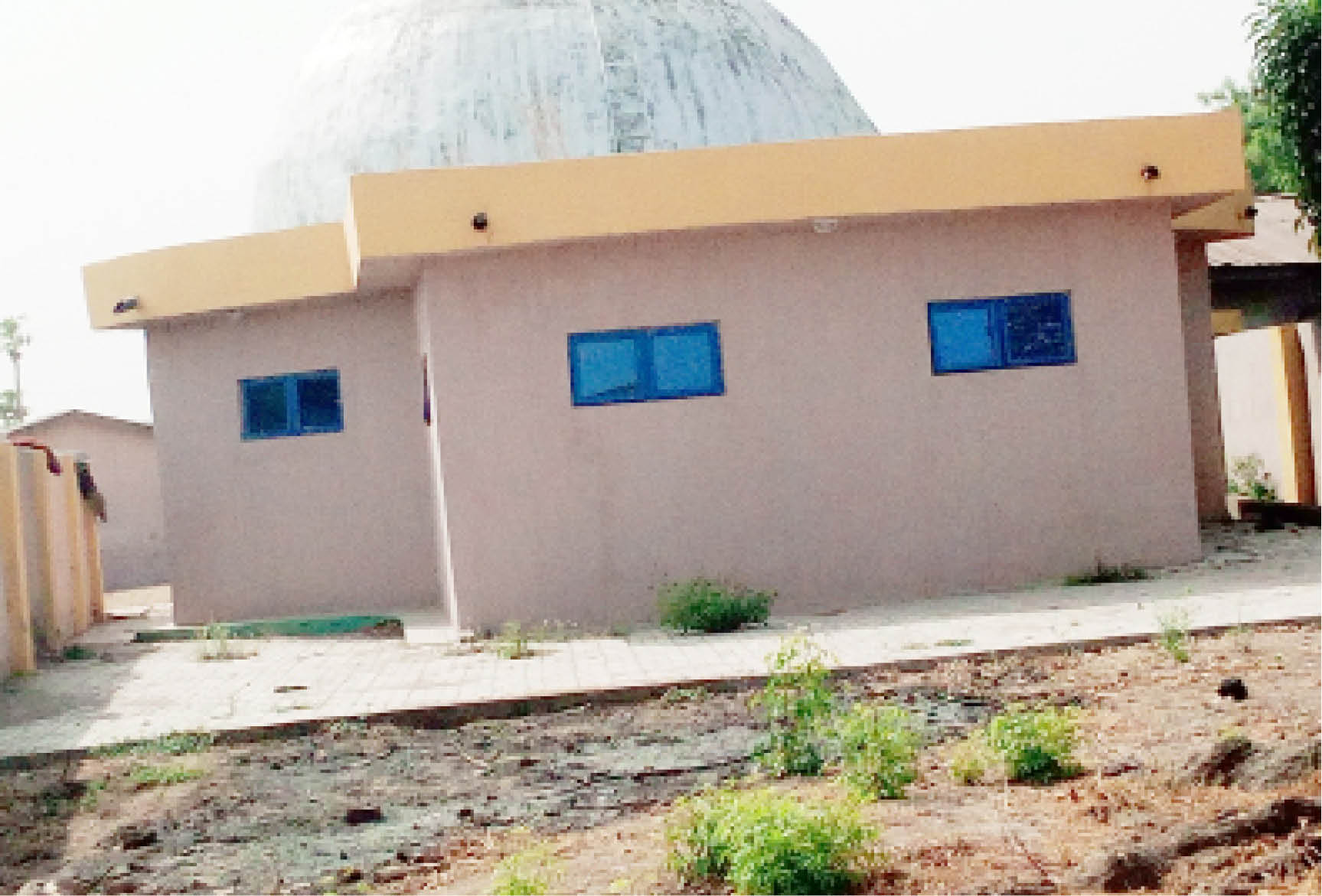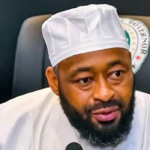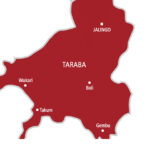Two Sultans of Sokoto, the late Muhammadu Tambari and Ibrahim Dasuki, were deposed at different times and banished to different towns in Taraba State.
Tambari was deposed on January 13, 1931, and banished to Wukari on November 19, 1931.
Wukari town was then under the Benue Province and far away from Sokoto, the seat of the caliphate.
Findings by Daily Trust revealed that Sultan Tambari was initially put under house arrest, but he managed to escape to Niger, a French colony.
- Kidnappings, killings put Nasarawa on edge
- Maggot therapy: We’ve saved 30 patients from amputation – AKTH entomologist
He was said to have been persuaded to return by the British colonial leaders who felt uncomfortable with a large crowd that surrounded him in Niger. They promised to allow him to settle in Kaduna.


On his return, the deposed Sultan was immediately banished to far away Wukari town, which is now in Taraba State.
Although most residents of Wukari who knew when the late Sultan arrived are now late, few elderly persons who were young at that time and heard the story of the deposed traditional ruler from their parents, narrated how Tambari arrived Wukari.
Among them is Alhaji Usman Garba of Akata ward, an area located close to the quarters where he was accommodated, along with the people that followed him from Sokoto.
Garba, who is now over 80 years old, told Daily Trust that he was very young when Tambari arrived Wukari, but his father told him the story.
According to him, the deposed Sultan came into Wukari with a large crowd of followers, including his slaves, numbering over 1,500 and was allocated a big compound as his house while a large plot of land was also allocated to those who came with him.
“He arrived during the reign of the then Aku Uka of Wukari Amadu. It was the Aku that allocated the land, perhaps working on the instructions of the colonial masters of that time,’’ he said.
He explained further that as a young person then, he was informed that many of those that started the journey with Tambari from Sokoto could not make it to Wukari, for many reasons.
“The deposed Sultan met many Hausa people who had been in the town for many years, contrary to the notion that he would meet a different set of people in Wukari from those in Sokoto and other parts of Hausa land,’’ he added.
He told our correspondent that the Sultan had maintained top protocol as it was not easy for anyone to see him, except on rare cases.
“My father used to drag me by hand to go to Tambari’s house, located close to the quarters, where many of the Muslim community resided. And they were mostly Hausa people who came from either Kano, Zaria, Katsina, Daura or Bauchi to greet the deposed Sultan,’’ he narrated.
Another elderly person, Musa Dauda, who resides very close to Sultan Tambari’s tomb, said the compound where he lived was very big, but after his death in 1935, neighbours encroached on it until it was reduced to a small size.
He said he too was very young at that period and cannot say he knew exactly when Tambari arrived Wukari.
He said it was his late father that told him much of the story about the late deposed Sultan.
Dauda explained that he grew up to see many people in his neighbourhood, called Sakkwatawa.
The Sakkwatawa, according to him, was said to have come to Wukari along with the deposed Sultan.
The Aku Uka, who was the Jukun paramount ruler at the time, was the one taking care of much of the deposed Sultan’s needs, he further said.
“There was no native police guarding the house of the deposed Sultan though he always kept indoors,’’ he added.
Mallam Dauda further explained that the Muslim community in Wukari benefitted much from the late Tambari and his people as he brought scholars who further helped to propagate Islam in Wukari and beyond.
He said they grew up to find that the Sakkwatawa were very generous, but could be very aggressive, adding that he could remember a tall woman who was very aggressive.
“The woman died long ago in Wukari, but l can still remember how she would not allow anybody to fetch water from a stream close the house of Sultan Tambari until she finished, and nobody dared to confront her,’’ he said.

He said that apart from Islamic education, the Sakkwatawa also increased the population of the already existing Hausa community in the area.
“They practise a system in which rams slaughtered during Eid Kabir are roasted outside their houses and shared to everyone, including passersby,’’ he added.
He said that after the demise of Tambari, many of those who came with him wanted to return to Sokoto, but because of distance, they were unable to do so.
The Sakkwatawa or Sultan Tambari people as they were referred to at that time, integrated with the mainstream of the Hausa and Jukun communities and engaged in intermarriages, which helped to further blend them.
The Unguwan Sokoto, now Sokoto, has an area name Sokoto Road in Wukari, just like Dikko Street that housed the Sakkwatawa, Katsinawa, Daurawa, Kanawa and Zazzagawa, among many Hausa and Kanuri communities that came years before the late Tambari was exiled to the town.
Dauda also revealed that the late Sardauna Ahmadu Bello was the first prominent figure to visit Tambari’s tomb. He said the late premier visited the tomb three times.
The late President Shehu Usman Shagari also visited the tomb and released money for its upgrade.
The late Sultan Ibrahim Dasuki, Muhammadu Maccido and the present one had also visited the tomb.
He said the late Emir of Kano, Ado Bayero, Emir of Zazzau, Alhaji Shehu Idris and other prominent emirs also visited the tomb.
The man holding the keys to the tomb, Waziri Aliyu, told Daily Trust Saturday that a prominent merchant in Wukari who was very close to Sultan Tambari died about 20 years ago.
He said many of those who followed Tambari relocated to other towns, including Takum, Katsina-Ala, Ibi, Bantaje and Jalingo because of religious and communal crises that happened in Wukari severally.
He said that apart from prominent Sokoto figures that visited the tomb in the past, many visitors still come to visit, especially the Fulani (Bororo) who have made it a ritual before going for pilgrimage in Makkah.
On the renovation work, which was completed recently, Aliyu informed Daily Trust Saturday that when the present Sultan of Sokoto, Saad Abubakar, visited the tomb a few years ago, he sent money for the final work. It was the Aku Uka of Wukari, Shekarau Agyo that personally handled the work.
Aliyu, who conducted our correspondent around the tomb, called ‘Hubbaren Sarkin Musulmi Tambari, said it was built to standard and the rooms that once accommodated the late Tambari and his family gave way for the present structure.
“Many visitors come here from time to time. The Fulani in Taraba and beyond, including Cameroon, visit the ‘ Hubbare’ more often than any other group of people,’’ he said.
The deposed Sultan Dasuki was also sent on exile to Taraba State by the late military ruler, General Sani Abacha.
Dasuki was appointed by a former military head of state, General Ibrahim Babangida (retd) in 1988 as the 18th Sultan of Sokoto.
He was deposed in 1996 and banished to Taraba. He was first brought to Jalingo, the state capital and kept in government lodge, called Brown House, located close to the Government House, along the popular Barde Way.
The news of his presence in the Brown House soon filtered into Jalingo and many residents were attracted to the vicinity to see him, but heavy security at the lodge prevented them.
He was later transferred to Zing, about 73 kilometres away from Jalingo and kept inside a local government lodge.
Initially, the lodge where the late Sultan Dasuki was kept was not heavily guarded, but when his presence started attracting people, more security men were deployed and the small road leading to the lodge was barricaded.
The Sultan was, however, allowed to leave Zing for his personal residence in the Malali area of Kaduna town by the General Abdulsalami Abubakar administration, which took over power after the death of General Abacha.
He died in his personal residence in Kaduna on November 14, 2016.

 Join Daily Trust WhatsApp Community For Quick Access To News and Happenings Around You.
Join Daily Trust WhatsApp Community For Quick Access To News and Happenings Around You.



